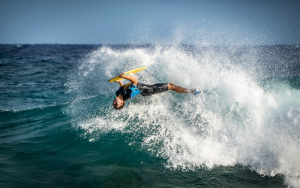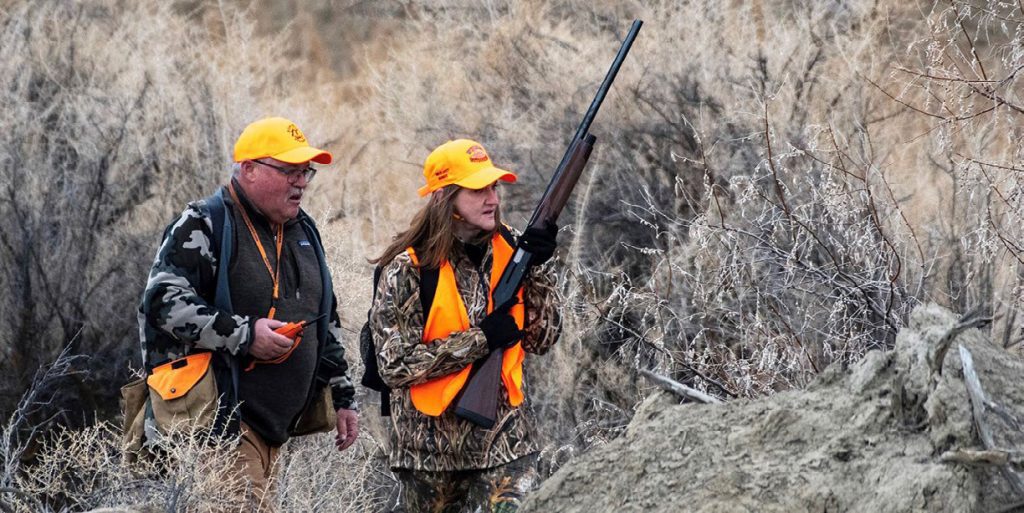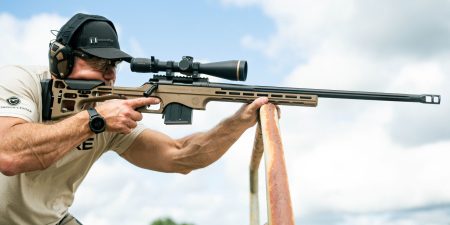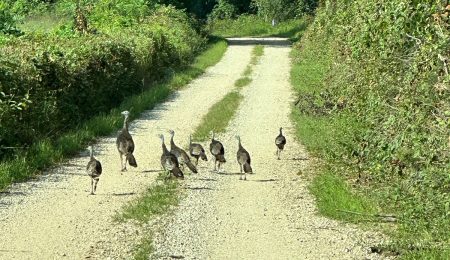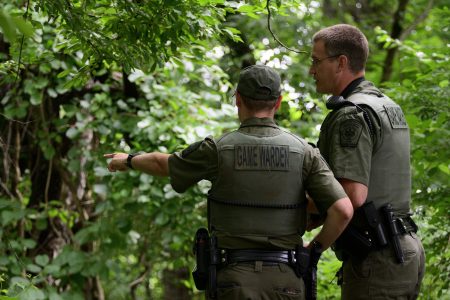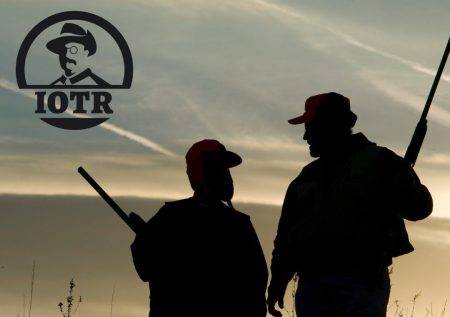Over 80% of Americans believe in paying it forward: from shoveling snow or carrying groceries for neighbors, or giving big tips to deserving waiters, to paying for the food of the person behind them in a fast-food drive-thru. Random acts of kindness are alive and well, according to this February 2024 poll by OnePoll for the banking app Chime. And these acts make us feel better about ourselves and life overall as well as make us feel more confident.
Big-hearted hunters are also a part of the paying-it-forward movement. As mentors, they give their time and expertise to youth and adults who want to learn to hunt.
Rick Brazell, founder and president of the First Hunt Foundation (FHF), started the nonprofit organization in 2015 to systematically increase this teaming up of hunting mentors and mentees.
“Our mentors get excited about giving something back,” Brazell said. “Many say they would rather see someone else harvest an animal and get excited than themselves doing so.”
This new hunter–mentoring organization is seeing stellar growth. “We currently have approximately 1,260 volunteer mentors across all 50 states,” said Brazell. “We get new applications almost daily, and we expect to have many thousands of mentors within a few years.”
Why did Brazell himself want to pay it forward with his love of hunting? Here’s his story and the story of this inspiring organization.
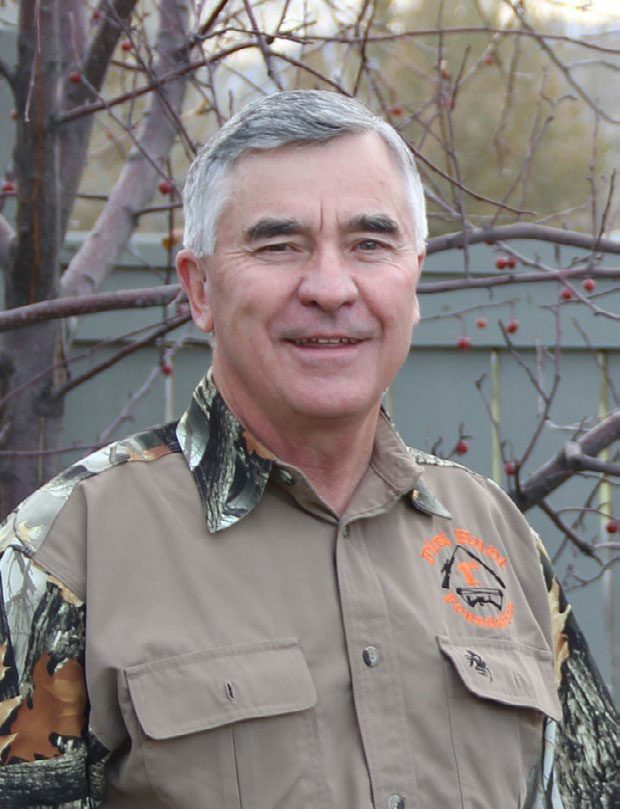
What’s retirement?
Rick Brazell grew up in Texas. “I am a self-taught hunter,” he said. “My dad rarely hunted but supported me in learning, so my buddy and I talked to anyone and everyone when we were around 10 years old.”
He moved to Utah to get his Master’s in Wildlife Management. For much of his career he worked for the U.S. Forest Service. When he retired, he had been managing four million acres of national forestlands.
“All four of my sons learned to hunt because of my passion,” he explained. And he was always teaching his sons’ friends and other kids how to hunt.
“When living in Washington state, I had 20 acres of grass pasture with alfalfa fields below me. The deer would walk around or right through my place so I put up a feeder, which is legal in Washington. The deer would stop just long enough to get a bite before heading to the fields. I let seven youth come and harvest their first deer in one year. Years later, I ran into many of those youth who exclaimed to me, ‘Mr. Brazell, I’ll never forget you letting me come to your place and harvest my first deer! That meant so much to me!’ ”
When retirement was coming up, Brazell was trying to figure out what to do with his free time.
“I remembered the excitement of those youth and thought to myself, ‘What if I could duplicate those feelings for hundreds if not thousands of youth? What would it take to do that?’ ”
Thus, he started the First Hunt Foundation and works 40 to 50 hours per week as a volunteer in his retirement years. (He currently lives in Idaho.)
“First Hunt Foundation is very unique in the non-profit world in that we have no paid employees which includes me,” he said. “We are all volunteers.”
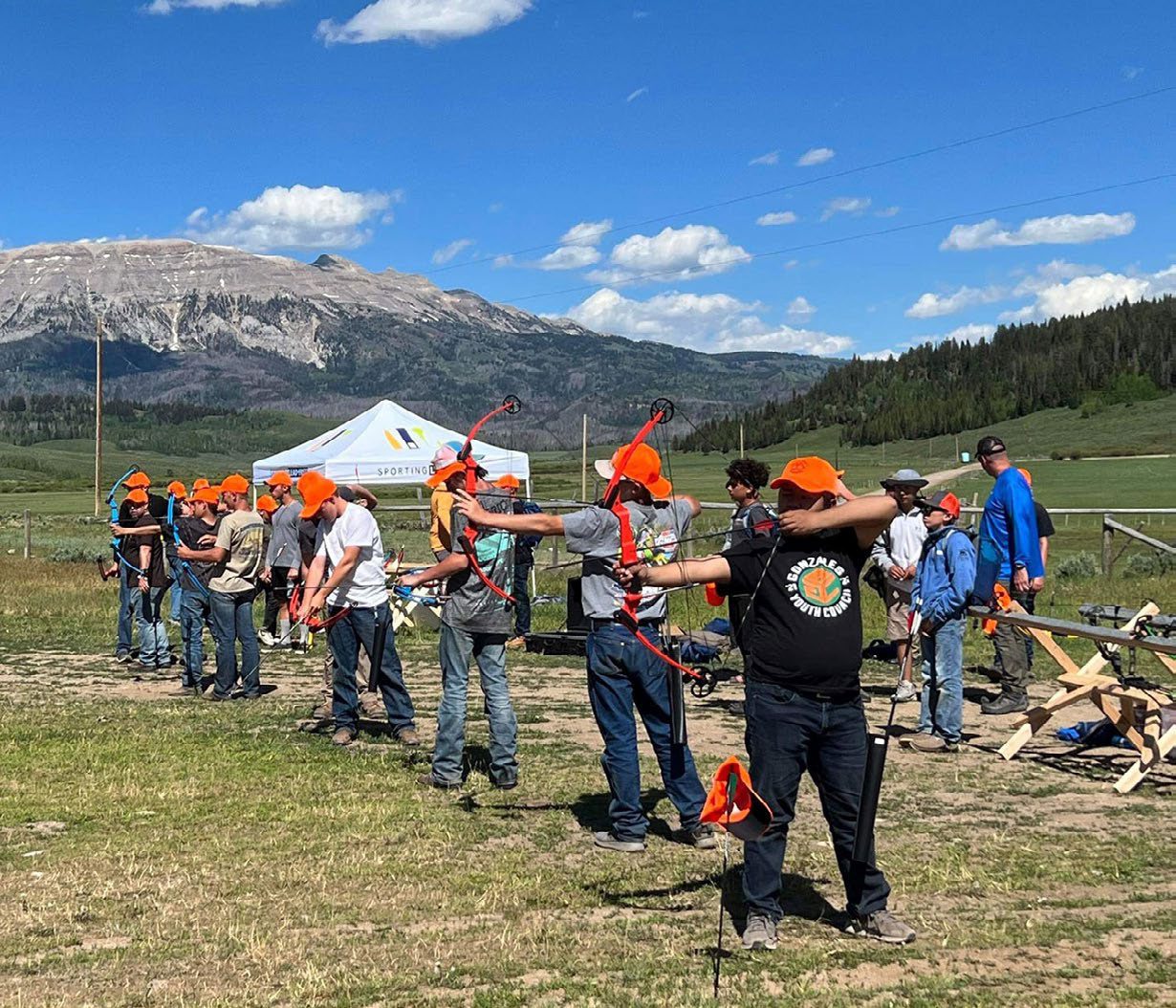
Mentors pair up with mentees
All mentors must pass a criminal background check and agree to a “Mentor’s Creed” to participate in FHF’s programs.
The core of mentoring is to teach new hunters shooting safety and hunting skills, field craft, game identification, shot placement, following blood trails and weather knowledge. FHF’s hope is that these newly acquired skills–plus the experience of a first hunt–will help the participants develop a life-long passion for the outdoors and hunting.
Most of the people who want to learn to hunt come from families of nonhunters, but they are a diverse group. Youth mentees range in age from 8 to 18 years old, but adults are a significant part of the mentees. In 2022, adults were over 40% of the mentees, and females were 57% of all mentees. (Data for 2023 are not available yet.)
Fairly common are mentees from the same family, such as a father and his daughter or a mother and her daughter.
“[Two family members attending] is getting to be fairly common at our camps, and we promote it vigorously when we can,” Brazell said. “It’s something where a family can bond together. Parents or guardians must attend any overnight activities so it often allows for us to train them both.”
There is no cost to participate in FHF. Because mentees are just getting into hunting, they rarely have the necessary equipment. Mentors often use their own equipment and ammo to get folks started. Additionally, FHK works closely with major corporations in the outdoor industry to get deals on equipment for mentors and mentees.
“The expense of getting into hunting has been shown to be a major impediment for new hunters getting into the sport,” said Brazell. “We offer equipment deals from Vortex, Bear Archery, King’s camo, OnXMaps, just to name a few.”
The range of species hunted varies, but whitetail deer and turkey are their most hunted species. “We mentor hunts on anything that is legal within a state and if we have mentors with those skills,” Brazell said. “Some mentors are game- or weapon-specific as well.”
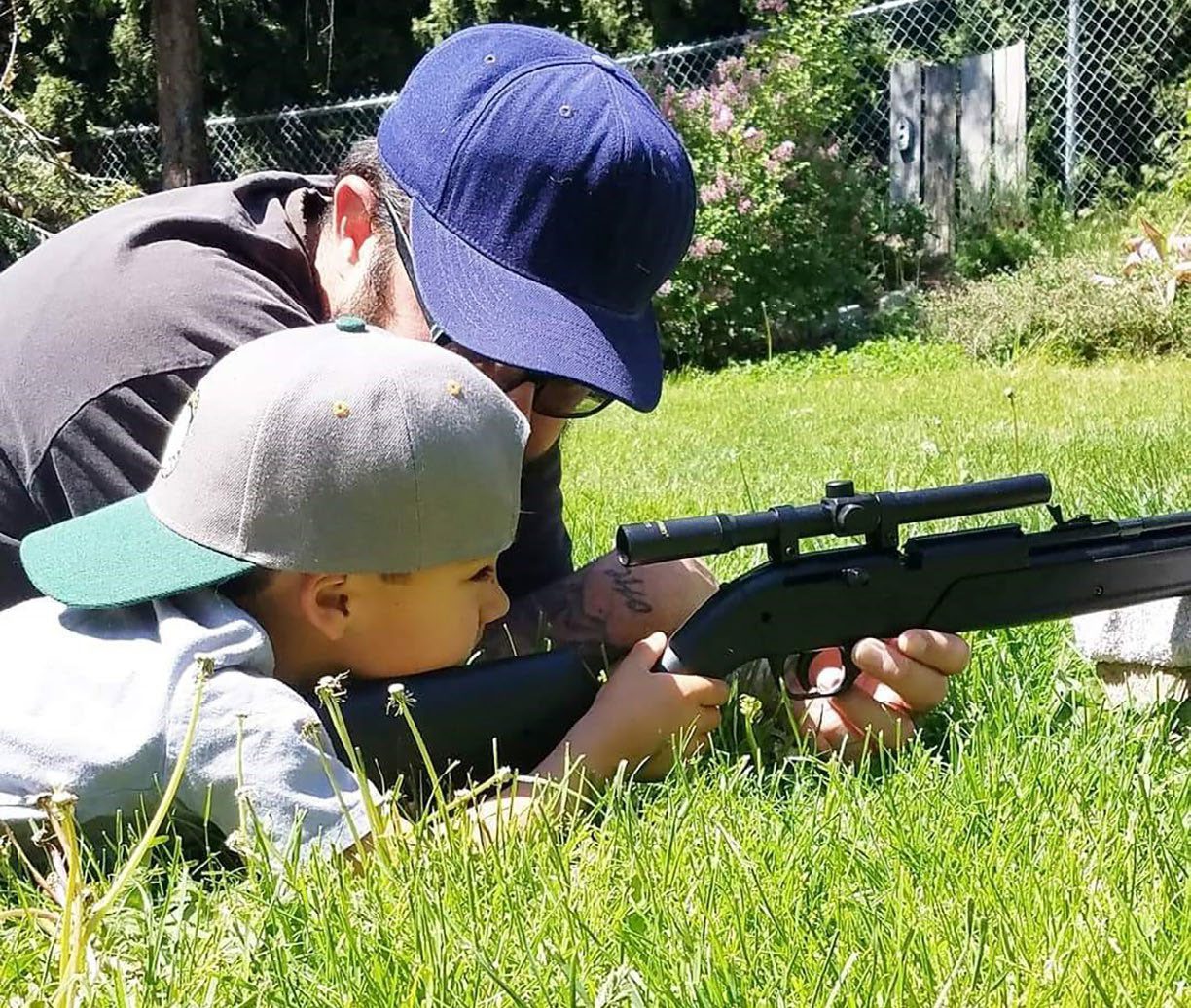
Programs for everyone
FHF is proud that they now have mentors operating in every state. Their modus operandi is to first find mentors and then either a State Director or a Chapter President to get FHF programs organized within their state. Some states have six chapters that in turn work for or with a State Director.
“State Directors are the ambassadors for FHF in their respective states,” said Brazell. “They are the point of contact for the state fish and wildlife agencies and state-level NGOs. They work to establish chapters and then support them in their endeavors. They work at fundraising for their states.”
First Hunt Foundation’s vision is to promote inclusivity and diversity in the hunting community.
Thus, they have several programs geared to specific constituencies:
Connecting Heroes and Hunters is their veterans program. “FHF’s veteran program is not like most other veteran programs where a veteran is taken out on a great hunt, everyone pats themselves on the back for doing it, and then it’s on to the next,” Brazell said. “Our program is about giving veterans and first responders a new mission. They already have skills in shooting and leadership, so we coach and mentor them into becoming mentors themselves.
“Our national leader, Rich Cotte, tells the story of how he lost his support group, friends, and network when he retired from the military and how he was in a mental funk and reached out to me. I was wanting to start a veterans program, and we teamed up to create Connecting Heroes and Hunters. It got him out of a dark place and now he wants to help everyone!”
| How to get involved |
| There are numerous ways to get involved with this growing organization, whether as a mentor, mentee, donor, or sponsor. Besides mentoring, volunteers can help at one of their camps. Some management positions are open, such as Chief Financial Officer.
Visiting their website is a good start, as well as visiting their Facebook, Instagram and LinkedIn pages. There is an interactive Mentor Map on their website where you can hover over a flag, and the contact information for a mentor pops up. You can even go on an African Safari, one of FHF’s recent fundraisers. |
Share the HERitage program is for female mentors and mentees. Brazell said it is growing “super fast.”
“Our national Share the HERitage director, Rachel Voss, has a ton of social media followers and that has helped get it going,” he said. “We recently got a federal multi-state conservation grant to host 20 women mentoring events in 15 states and with five Native American tribes.
“We recognize that it is often more effective for women and girls to learn hunting skills from other women, who understand how to overcome the unique barriers women may face when embarking on their first hunt. We hope these experiences build a network of female hunters who can rely on each other for knowledge, shared experiences, and confidence-building connection.”
The Forgotten Rites is a new program started in 2021. It seeks to engage underrepresented populations in the hunting community, including people of color, Native Americans, and Pacific Islanders.
“In several societies, a successful hunt symbolized the transition from a dependent member to a contributing one of the community,” said Brazell. “However, numerous cultures have lost touch with this age-old rite of passage.
“We already hosted several small turkey camps and will host a women of color hunting event in Virginia this year,” Brazell said. “The program is being directed by Ray Livingston, who was on the last season of the Mountain Men show on the Discovery channel. He already has a large following which will help build the program.”
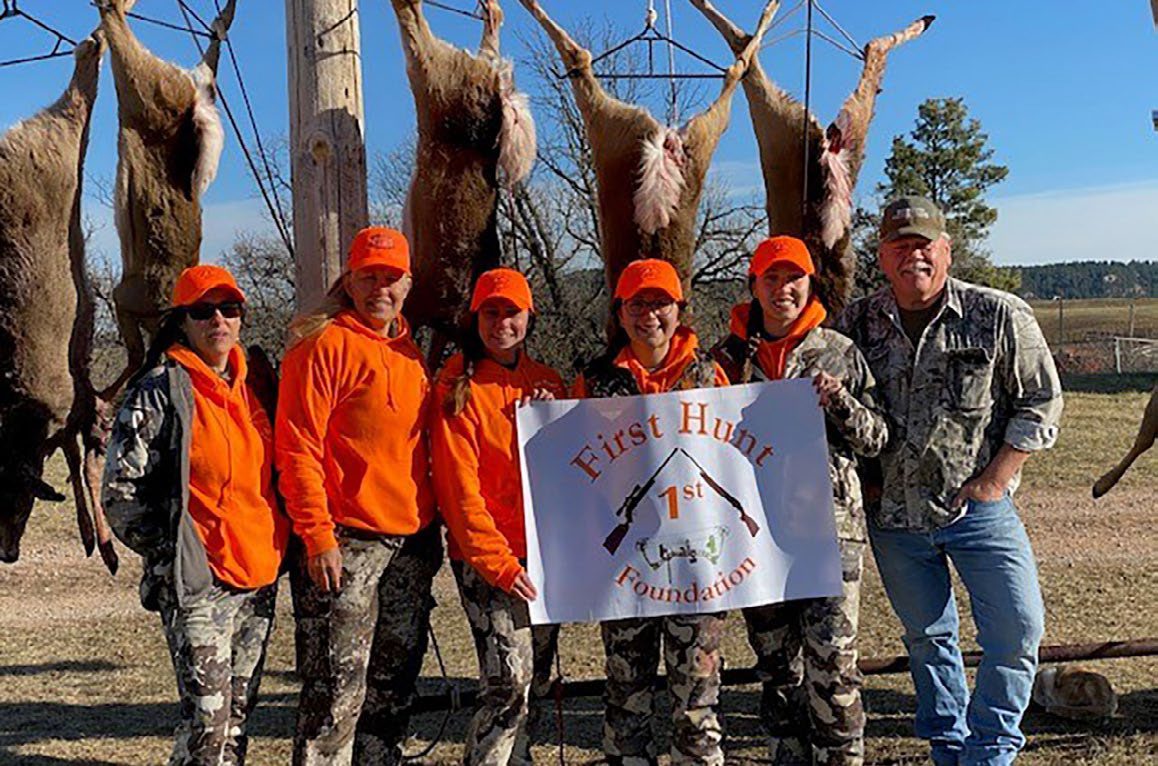
Keeping the hunting tradition alive
Millions of people have hunted or benefited from its harvest, but fewer people are taking up hunting and shooting sports.
“The data show that the average age of a license buyer in the U.S. is older, and within 10 years many of those folks will be dropping out due to death or age-related issues,” said Brazell. “Data also shows there are not enough new folks entering the system at younger ages to keep the system solvent. Can you imagine some state fish and game agencies being dismantled due to lack of license sales? It’s a real threat, which is why the R3 movement [Recruitment, Retention, Reactivation] started and has gained national attention.”
| Teaching youth to hunt can change their lives |
| Here’s one story about Johnny Ross, as told by Rick Brazell:
“Johnny and his two brothers (one older and one younger) have parents that made bad choices, ending them in prison or in trouble with the state. Fortunately, elderly grandparents stepped in to take the boys in at a young age. Their grandfather asked me–literally on his deathbed–to try and teach the boys about hunting and I agreed. “The older one had no desire nor interest, but Johnny was excited. I trained him how to shoot and took him out for whitetails, and he finally harvested a nice little buck and later a doe. When the meat was brought home, the widowed grandmother broke down and cried both times because that little bit of meat made a huge difference in their diet. She is living on her husband’s Social Security check and feeding three growing boys. “Johnny was so proud that he was actually feeding the family at a young age, and he is now committed to hunting. I will be taking his younger brother out this year.” |
“For many of us, hunting is a natural part of our lives,” Brazell said. “We enjoy spending time in the woods pursuing game, hanging out with family and friends, and more importantly passing those unique skills on to the next generation. Unfortunately, there are thousands of youth and other interested people who would love to learn hunting skills, but literally have no opportunity. They have no support group, no family members or friends that can help them have that first hunting experience. That’s where FHF comes in.”
Not only is FHF’s goal to keep America’s hunting tradition alive, but also to change lives.
“We have numerous stories of how people beginning their hunting journeys have given them purpose,” he said. “The confidence gained by many of the youth going out and learning new skills is reflected in their reactions and the input we get from parents. Many of the earlier youth have become mentors themselves because they want to give back.”
“We are training up the next generation of citizens, leaders, and voters that will view hunting as an essential part of their family’s life.”
Per our affiliate disclosure, we may earn revenue from the products available on this page. To learn more about how we test gear, click here.

